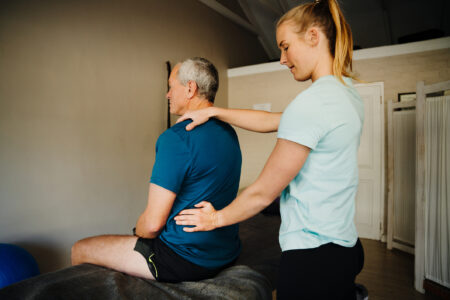
Physiotherapy
Physiotherapy involves the treatment of various physical conditions by degree-trained professionals. Physiotherapist’s utilise modalities and strategies that are informed by research evidence to help alleviate pain and improve physical function. Such strategies include rehabilitative exercise programs, manual therapy “hands on” techniques as well as promoting movement.
See below some of the treatments our physiotherapist’s utilise to help with these conditions.
BOOK NOW
Conditions We Treat
- Shoulder Pain (e.g. rotator cuff, bursitis, arthritis, dislocations)
- Hip Pain (e.g. arthritis, labrum tears, hip flexor injuries)
- Back Pain (e.g. lumbar disc and facet joint, sciatic nerve, muscle spasm)
- Knee Pain (e.g. meniscus tears, patellofemoral ‘kneecap’ pain, patella tendon, arthritis, ACL)
- Ankle Pain (e.g. ankle sprain, arthritis, plantar fascia, achilles tendon)
- Neck Pain (e.g. acute wry neck, muscle spasm and ‘joint stiffness’, facet joint and disc)
- Elbow Pain (e.g. tennis elbow)
- Paediatric Care (Children)
- Neurological and Disability Conditions including NDIS participants
- Aged Care Conditions
- Sporting and Athletic Injuries
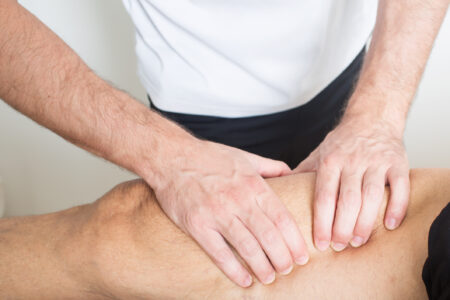
Manual Therapy
Manual therapy involves “hands-on” techniques to help in the reduction of pain and symptoms or increase range of motion of a
joint. Our physiotherapists provides various manual therapy techniques such as soft tissue massage, joint mobilisation and dry
needling. Research shows that these techniques can have short-term effect on pain and function and we believe that when utilised in
addition to exercise rehabilitation outcomes are best achieved.
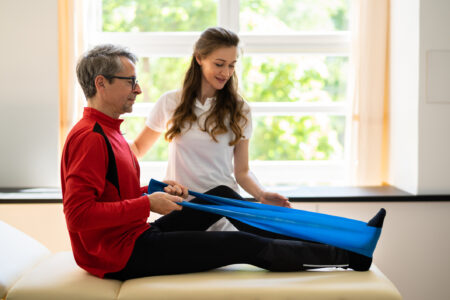
Exercise Therapy
There is sound research evidence for the effect of exercise as therapy for many musculoskeletal pain conditions and injuries. At Continuum Physiotherapy exercise is used to rehabilitate as well as minimise risk of future injury. Aims of exercise therapy include increasing muscular strength, endurance and power as well as improving range of motion and balance. Every patient has access to a mobile-friendly app which includes videos of their individualised exercise program to increase ease of performance.
BOOK NOW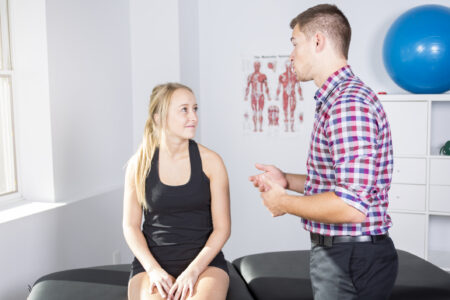
Education
Research shows that clinical outcomes can be negatively affected when a person feels that the explanation of their problem by
the practitioner is too “technical”. In contrast, research shows people feel more comfortable when they are provided with a
simple, clear explanation of what their problem is, how the physiotherapist can help them and why they were prescribing
particular exercises. We value people understanding their physical condition; therefore we provide adequate time explaining the presenting problem
and the recommended treatment plan to help fix the issue.
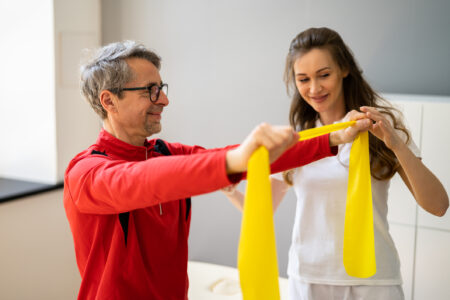
Post-Surgical Rehabilitation
Rehabilitation pre- and post- surgery has been shown to be greatly important in optimising outcomes following surgery. Guidance from your physiotherapist on what to do and what not to do as well as a structured and gradually progressed exercise program is vital to ensure resolution of strength, range of motion and post-operative goals (e.g. a return to activity or sport) are safely achieved.
BOOK NOW
Sports Injuries
We love sport. We understand that missing time playing sport can be frustrating. Our goal is to help people return to sport as safely and comprehensively recovered as possible to minimise risk of reinjury and to enhance return to performance. Our physiotherapist’s have a lot of experience working with those who play football, soccer, basketball, netball as well as those who enjoy running.
BOOK NOW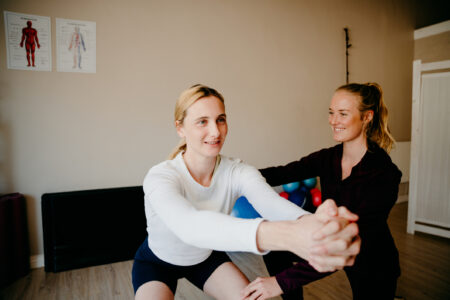
GLA:D® Program for Knee and Hip Osteo-Arthritis
GLA:D®, from ‘Good Life with osteoArthritis in Denmark’, is an education and exercise program developed by researchers in Denmark for people with hip or knee osteoarthritis symptoms. It was then brought to Australia in 2016. This education and exercise program reflects the latest evidence in osteoarthritis (OA) research. It also includes feedback from people with OA and trainers on what works in the real world to help patients manage OA symptoms.
Current national and international clinical guidelines recommend patient education, exercise and weight management as first line treatment for everyone with OA. In Australia, treatment usually focuses on medications and surgery. The GLA:D® Australia program offers a safe alternative that may reduce your need for medications, avoid the need for surgery, and improve your ability to participate more actively in work and recreational activities.
BOOK NOW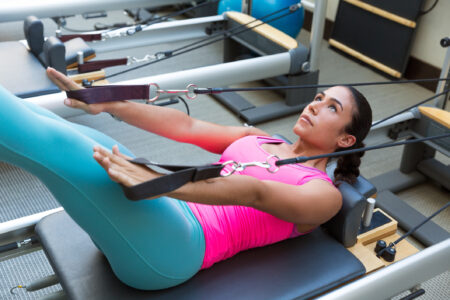
Supervised Pilates And Exercise Strengthening Classes
Over the years physiotherapists have used “clinical pilates” as a way to help treat a number of injuries and other pain conditions. The two main methods of pilates include mat pilates, which is performed on a yoga or exercise mat on the ground, and equipment pilates, which is performed using various equipment like a pilates reformer or trapeze table. Clinical pilates in a rehabilitation setting usually involves a combination of both methods.
At Continuum Physiotherapy we offer pilates sessions for our patient’s recovering from injuries or pain conditions. Additionally, we offer pilates sessions for those not recovering from an injury looking to improve their stability, strength and fitness. Our practitioner’s have many years of experience.
BOOK NOW
